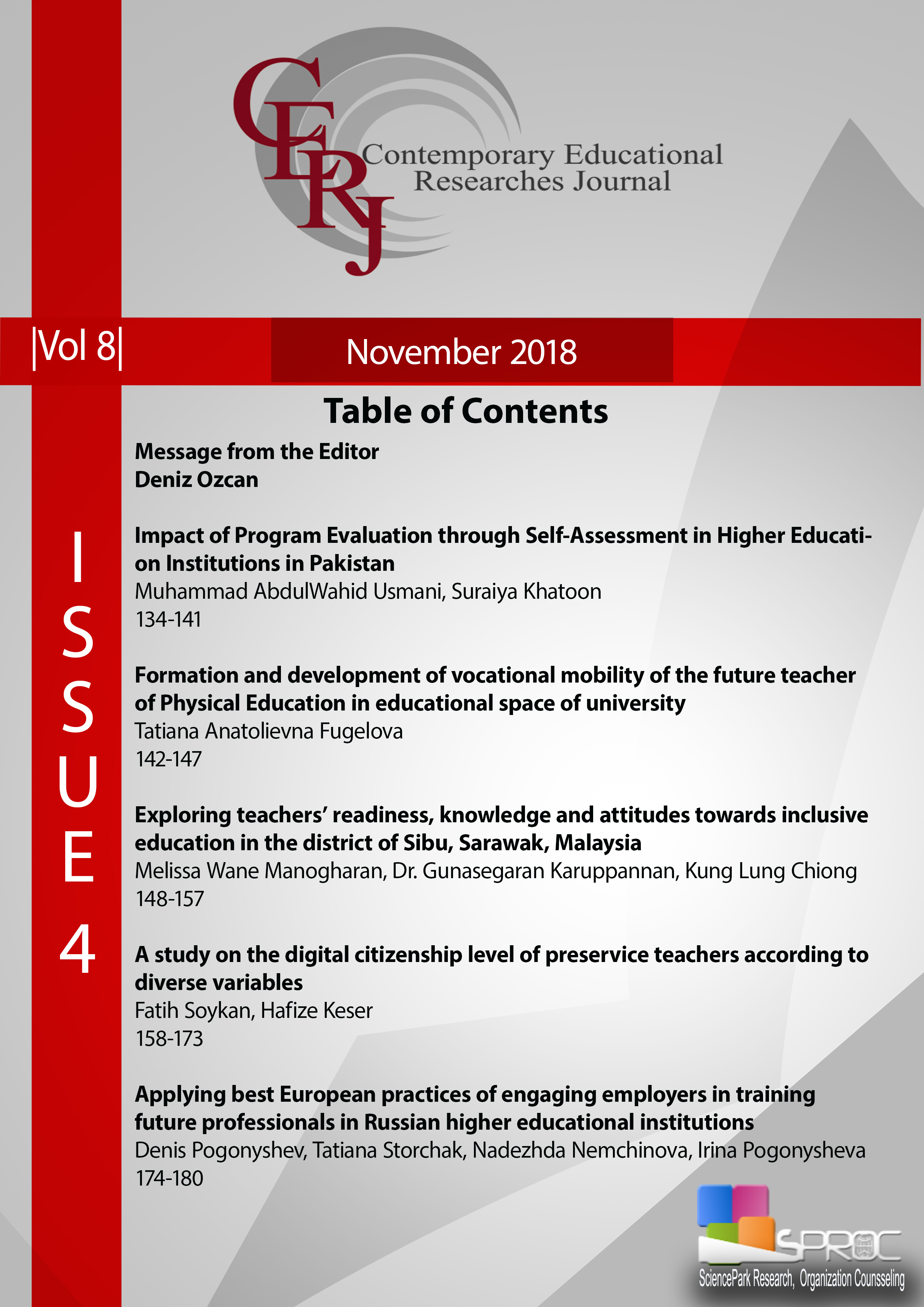A study on the digital citizenship level of preservice teachers according to diverse variables
Main Article Content
Abstract
The purpose of this study is to identify and examine the digital citizenship levels of preservice teachers according to diverse variables. The sample of the study consists of students at Atatürk Education Faculty of Near East University (n=345). Likert-type “digital citizenship scale†with 7 dimensions and 64 items which was developed by Kocadağ (2012) and a personal information survey consisting of 8 questions which was developed by the researchers were used as data collection tools. Digital citizenship level of preservice teachers and their sub-dimensions such as digital communication and literacy, digital ethics and law, digital access, digital rights and responsibilities, digital health, digital safety, digital commerce and data obtained from diverse variables in personal information survey were examined. According to the obtained findings, it was observed that digital citizenship level of preservice teachers varied between good and very good. At the end of the study, it has been understood that as the history of using digital tools of preservice teachers increases, so does their digital citizenship level; in addition, those with better economic means have higher access to digital tools and more knowledge and experience on digital shopping.
Keywords: digital citizenship; preservice teachers; digital literacy; digital environments; digital native
Downloads
Article Details

This work is licensed under a Creative Commons Attribution 4.0 International License.
Authors who publish with this journal agree to the following terms:
- Authors retain copyright and grant the journal right of first publication with the work simultaneously licensed under a Creative Commons Attribution License that allows others to share the work with an acknowledgement of the work's authorship and initial publication in this journal.
- Authors are able to enter into separate, additional contractual arrangements for the non-exclusive distribution of the journal's published version of the work (e.g., post it to an institutional repository or publish it in a book), with an acknowledgement of its initial publication in this journal.
- Authors are permitted and encouraged to post their work online (e.g., in institutional repositories or on their website) prior to and during the submission process, as it can lead to productive exchanges, as well as earlier and greater citation of published work (See The Effect of Open Access).
